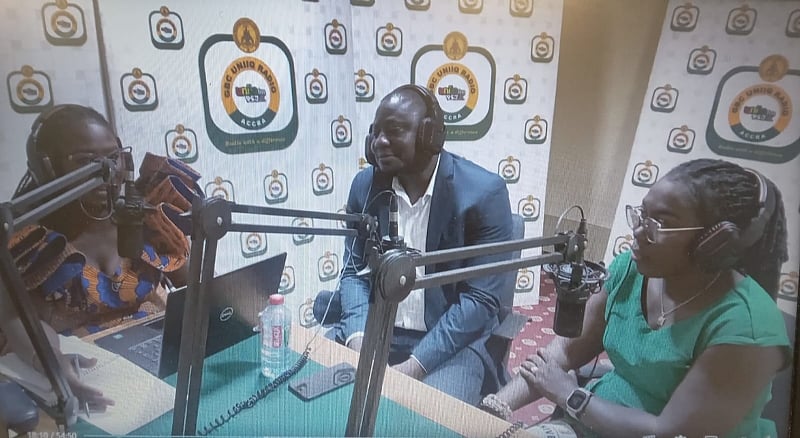The 2025 World Radio Day, themed “Radio and Climate Change,” offered a crucial platform to address the pressing issue of our changing climate. Ghana Broadcasting Corporation’s Unique FM exemplified this by dedicating its Drive-Time Show to the topic, featuring insightful discussions on the challenges and potential solutions surrounding climate change, and highlighting the role of radio in disseminating vital information to both local and global audiences.
The discussion emphasized the scientific basis of climate change. Expert Eric Kofi Afornorpe outlined the demonstrable shift in temperature and rainfall patterns since the 20th century, attributing these changes to the industrial revolution and subsequent human activities. He clarified the connection between increased global emissions, the greenhouse effect, and the resulting global warming. This warming trend, he explained, is the driving force behind the erratic weather patterns, including increased flooding and droughts, that are becoming increasingly prevalent. He framed climate change as a call to action, emphasizing the urgent need for mitigation strategies to reduce emissions and combat the escalating crisis.
Alice Azu, representing the perspective of the citizenry, connected the theoretical explanations to tangible real-world consequences. She highlighted deforestation as a key contributor to climate change in Ghana, explaining how the removal of trees diminishes the environment’s ability to absorb solar radiation, leading to increased temperatures and disrupting weather patterns. She cited specific examples from the previous year, including droughts in the Northern and Bono Ahafo regions and subsequent flooding, as direct consequences of climate change impacting food security and livelihoods. She underscored the urgent need for mitigating human activities to prevent further environmental damage and protect human health and well-being.
Both Afornorpe and Azu pointed towards mitigation and adaptation as key strategies for addressing climate change. However, the discussion also necessitates a broader look at international cooperation and adherence to global agreements. The effectiveness of these strategies depends on global commitment to protocols like the Montreal Protocol and the Kigali Accord, which aim to regulate emissions and protect the ozone layer. Implementing these agreements requires stringent refrigerant management and a shift towards renewable energy sources.
Beyond international agreements, a transition towards sustainable practices is crucial. This includes embracing on-shore wind energy, similar to Norway’s model, and promoting plant-based diets to reduce the environmental impact of agriculture. Furthermore, fostering a culture of recycling and utilizing renewable energy sources are essential steps in mitigating climate change. Achieving these goals requires a collaborative global effort and a concerted shift in societal practices.
Effectively communicating the urgency and complexity of climate change necessitates engaging diverse media platforms. Community radio stations and rural information centers play a vital role in reaching remote communities, particularly in Ghana and across Africa. However, overcoming the financial hurdles associated with transitioning away from fossil fuels remains a significant challenge. This transition will require substantial investment and may entail lifestyle adjustments for citizens, potentially increasing the cost of energy in the short term. To drive the climate change agenda forward, multimedia platforms, bloggers, and vloggers must collaborate to disseminate accurate and empathetic narratives that educate the public and inspire action. This collective effort will be essential in fostering global awareness and promoting the necessary changes to mitigate climate change and protect our planet.


